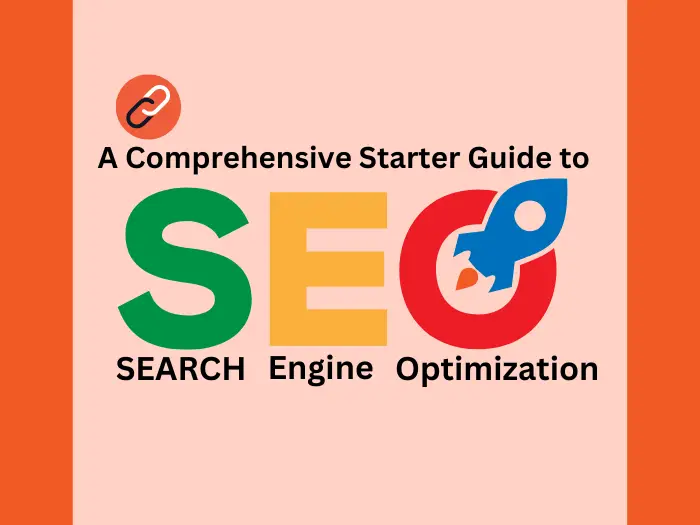SEO Demystified: A Comprehensive Starter Guide to Search Engine Optimization
SEO is an acronym for “search engine optimization” or “search engine optimizer.” Deciding to hire an SEO is a big decision that can potentially improve your site and save time, but you can also risk damage to your site and reputation. Make sure to research the potential advantages as well as the damage that an irresponsible SEO can do to your site. Many SEOs and other agencies and consultants provide useful services for website owners, including:
- Review of your site content or structure
- Technical advice on website development: for example, hosting, redirects, error pages, use of JavaScript
- Content development
- Management of online business development campaigns
- Keyword research
- SEO training
- Expertise in specific markets and geographies.
Understanding the Search Essentials
The Search Essentials are the foundational elements that determine whether your website is eligible to appear on Google Search. While there’s no guarantee of inclusion in Google’s index, adhering to these principles increases your chances of ranking in search results. This guide will walk you through essential improvements you can make to enhance your site’s presence in search results.
Demystifying Google Search
Google operates as a fully automated search engine, employing programs called crawlers to scour the web continually in search of new pages to add to its index. You don’t need to manually submit your site to Google; it usually discovers and indexes sites automatically. However, understanding how Google discovers, crawls, and serves web pages can provide valuable insights into optimizing your site.
FAQ: How Long Until I See Results?
Every change you make to your site takes time to reflect in Google’s search results. While some alterations may take effect within hours, others could take several months. Generally, it’s advisable to wait a few weeks before assessing the impact of your SEO efforts. Keep in mind that not all changes will result in immediate improvements, so patience is key.
Help Google Discover Your Content
Google primarily finds pages through links from other pages it has already crawled. Encouraging other sites to link to yours and promoting your content can expedite its discovery by Google. Additionally, submitting a sitemap—a file containing all the URLs on your site—can further aid in this process.
Ensure Google Sees Your Page Correctly
When Google crawls a page, it should see it the same way an average user does. Ensure that Google can access all the resources necessary to render your page correctly, including CSS and JavaScript. Using the URL Inspection Tool in Google Search Console can help you verify how Google sees your page.
Optimize Your Site Structure
Organizing your site logically can aid both search engines and users in understanding how your pages relate to each other. While restructuring your site may not be necessary immediately, organizing it sensibly can benefit your SEO efforts in the long run.
Create Descriptive URLs
Using descriptive URLs that reflect the content of your pages can enhance user experience and improve your site’s visibility in search results. Including relevant keywords in your URLs can also help users and search engines understand the content of your pages.
Reduce Duplicate Content
Duplicate content—where the same content appears under different URLs—can confuse users and waste search engine resources. Canonicalizing your URLs or setting up redirects can help consolidate duplicate content and ensure that search engines index the correct version of your pages.
Focus on Compelling Content
Creating unique, informative, and up-to-date content is essential for SEO success. Well-written content that meets users’ needs and provides value is more likely to rank well in search results.
Anticipate User Search Terms
Understanding the words and phrases users might search for can help you optimize your content for relevant search queries. By aligning your content with user search intent, you can increase its visibility in search results.
Optimize Title Links and Snippets
Crafting compelling titles and meta descriptions can influence users’ decisions to click on your search results. Writing clear, concise titles and descriptions that accurately reflect your page’s content can improve its click-through rate.
Enhance Image Optimization
Images play a crucial role in attracting users to your site, especially for visually-oriented searches. Using high-quality images and descriptive alt text can improve your site’s visibility in image search results.
Promote Your Website
Effectively promoting your content through social media, community engagement, and other channels can expedite its discovery by users and search engines. Word-of-mouth promotion and offline marketing can also help increase your site’s visibility.
Focus on What Matters
In the ever-evolving landscape of SEO, it’s essential to focus on strategies that align with your business goals and provide value to your users. Avoid getting caught up in outdated or irrelevant SEO practices, and prioritize efforts that contribute to your site’s long-term success.
By implementing these strategies and staying informed about the latest developments in SEO, you can enhance your website’s visibility, attract more visitors, and achieve your business objectives. Remember, SEO is a journey, not a destination, so continuous improvement and adaptation are key to sustained success.
Meta Keywords:
Google Search disregards the keywords meta tag. Keyword stuffing, or excessively repeating the same words (even in variations), is discouraged as it leads to a poor user experience and violates Google’s spam policies.
Keywords in Domain Names:
When selecting a domain name, prioritize what’s best for your business. While keywords in the domain name or URL path can be beneficial for users to find your site, they have minimal impact on rankings beyond appearing in breadcrumbs. Additionally, the top-level domain (TLD) only matters if you’re targeting specific country users.
Content Length:
There’s no fixed word count for content length that affects rankings. Writing naturally without repetitive phrases increases the likelihood of appearing in search results as it utilizes more keywords.
Subdomains vs. Subdirectories:
Choose the structure that aligns best with your business needs. While segmenting by subdirectories may offer easier management, partitioning topics into subdomains might be more suitable depending on your site’s topic or industry.
PageRank:
Although PageRank considers links and is fundamental to Google’s algorithms, it’s just one of many ranking signals used in Google Search. There’s a broader array of factors at play beyond links.
Duplicate Content “Penalty:
Having content accessible through multiple URLs isn’t penalized, although it’s inefficient. However, copying content from other sources is discouraged and may lead to consequences.
Number and Order of Headings:
While having headings in semantic order benefits screen readers, it’s not crucial for Google Search. The web’s HTML structure varies widely, so Google doesn’t rely heavily on semantic meanings encoded in HTML. Additionally, there’s no fixed ideal number of headings for a page, but if it feels excessive, it probably is.
E-E-A-T as a Ranking Factor:
Contrary to some beliefs, expertise, authoritativeness, and trustworthiness (E-E-A-T) are not direct ranking factors in Google Search algorithms.




